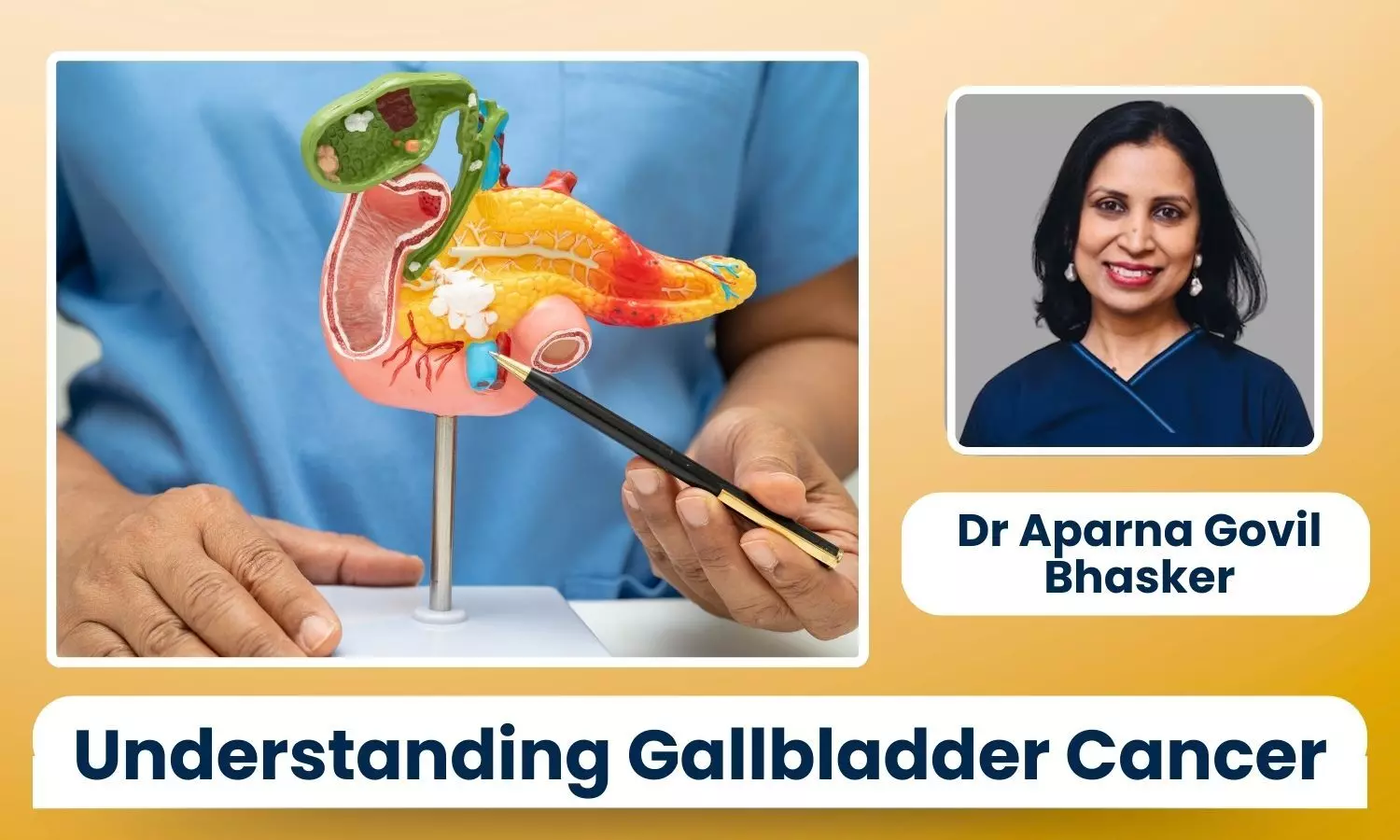Understanding Gallbladder Cancer: Early Symptoms and How It’s Treated - Dr Aparna Govil Bhasker

Did you know? Gall bladder cancer is often called a silent killer because it usually does not cause any symptoms in the early stages.
Often, it can go unnoticed, and by the time it is detected, it is usually spread locally and sometimes even to distant organs. Hence, awareness, early detection and timely medical evaluation are key to improving outcomes.
Gallbladder cancer is a rare but aggressive form of cancer that starts in the gallbladder, a small organ beneath the liver. The gall bladder stores and releases bile, which helps to digest fats.
Sadly, the biggest challenge with gall bladder cancer is its “silent nature”. Often, it shows no symptoms or very mild symptoms and hence escapes timely detection. The late diagnosis usually limits treatment options.
Gallstones and Cancer Risk: The Indian Perspective
Gallbladder cancer is a significant health concern in India, contributing to approximately 10% of the global gallbladder cancer burden. It is more common in North, North-East, Central, and Eastern India, where the disease often presents at an advanced stage with poor outcomes.
Also, in contrast to the West, gall bladder cancer in India tends to affect younger individuals, typically in their 5th and 6th decades of life.
Causes and Risk Factors:
The exact cause of gallbladder cancer is not fully understood, but several risk factors are known:
• Gallstones
• Chronic gallbladder inflammation
• Gallbladder polyps
• Obesity
• Older age (especially above 60)
• Family history of gallbladder disease
• Infections or bile duct abnormalities
These factors can lead to changes in the gallbladder lining, potentially triggering cancer over time. It is imperative to take note of the signs and symptoms for prompt diagnosis and treatment.
Note: While gallstones are very common, gallbladder cancer is relatively rare. Most people with gallstones or gallbladder inflammation do not develop cancer. However, the risk of gall bladder cancer is about five times higher in individuals with a history of gallbladder conditions, particularly gallstones, compared to those without them.
Signs and symptoms
In the early stages, gallbladder cancer may show no clear signs. However, as it progresses, the following symptoms may appear:
• Persistent pain in the upper right abdomen
• Nausea or vomiting
• Jaundice (yellowing of skin and eyes)
• Unexplained weight loss
• Fever
• Bloating or a feeling of fullness after eating small amounts
• A lump in the abdomen
Because these signs are similar to other common digestive problems, they are often ignored or misdiagnosed. Please do not ignore yourself and see a doctor at the earliest if you have any of these signs and symptoms.
Treatment: Depends on the stage at which the cancer is diagnosed. In early cases, surgical removal of the gallbladder (cholecystectomy) along with nearby tissue may be curative. If the cancer has spread, additional treatments like:
• Chemotherapy
• Radiation therapy
• Targeted drug therapy
• Palliative care (to get that much-needed relief from the symptoms) may be required to manage the disease and improve quality of life. The doctor will decide the line of treatment after examining you.
Gallbladder cancer needs early detection to allow patients to recover swiftly. Anyone with gallstones, chronic gallbladder issues, or unexplained abdominal symptoms should seek timely help without neglecting their health. Regular check-ups and awareness can help catch this silent threat before it turns dangerous.
Take Action Today
If you or someone you know has gallstones or risk factors for gallbladder disease, seek medical advice. Early detection and lifestyle changes can make a life-saving difference.
Disclaimer: The views expressed in this article are of the author and not of Health Dialogues. The Editorial/Content team of Health Dialogues has not contributed to the writing/editing/packaging of this article.


